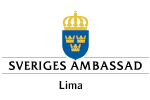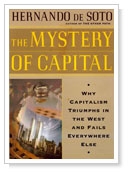 July 3, 2007 - Cape Town - Poor South Africans are sitting on R3 billion worth of "dead equity". This represented the potential value of about 1.8 million of the 2.5 million housing units built by the government since 1994, which were still without title deeds, housing minister Lindiwe Sisulu said yesterday.
July 3, 2007 - Cape Town - Poor South Africans are sitting on R3 billion worth of "dead equity". This represented the potential value of about 1.8 million of the 2.5 million housing units built by the government since 1994, which were still without title deeds, housing minister Lindiwe Sisulu said yesterday.
But research by the FinMark Trust, published in June 2004, indicates the problem is far wider than Sisulu's estimate indicates. It put the value of dead equity in former black townships countrywide at R68.3 billion. "And that was a conservative estimate," said Kecia Rust, the housing theme champion for FinMark Trust.
The term "dead equity" was coined by Peruvian economist Hernando de Soto to describe the value of property that could not be unlocked because the property could not be sold. But unlocking value will involve more than just improving the processing of title deeds. The government has placed a sale restriction on houses built with government subsidies.
"For the first five years, people are only allowed to sell back to the government, and there is no mechanism for that process," Rust said.
Another reason is that people are reluctant to sell, often because they cannot afford better accommodation. Nor do most people have access to mortgage loans because their incomes are too low.
Rust said between 10 percent and 30 percent of microloans were used for housing, usually for home improvements.
Another problem is the poor housing supply. One reason is that the Prevention of Illegal Evictions Act makes it difficult for property owners to evict tenants who do not pay rent - a disincentive to property development.
Sisulu said an ANC policy conference resolution focused on the need to extract collateral value from the ownership of title deeds. She was liaising with the department of land affairs and agriculture to speed up the process of providing title to those with houses from the Reconstruction and Development Programme (RDP) as well as what she would like to call the post-RDP houses, Breaking New Ground (BNG) houses.
The housing department's aim was to make the houses more suited to a family - by increasing the size from roughly 27m_ to at least 40m_ - and to make the environment conducive to future sales so people could upgrade to better communities.
The BNG policy includes providing mixed environments where bonded and rental housing can be provided in the same neighbourhoods as the "free" housing component, for those earning less than R3 000 a household a month.
Renters, who tend to be people who own property in another province, must prove that their rental equates to a maximum of 25 percent of income, with rentals set from R500 to R1 050 a month.
Sisulu noted that 8 000 people had applied for 705 rental stock flats at Joe Slovo settlement, part of the N2 Gateway, which had already been released. This indicated the level of need in this stratum of the community.
Published on the web by Business Report on July 3, 2007
© Business Report 2007. All rights reserved.



